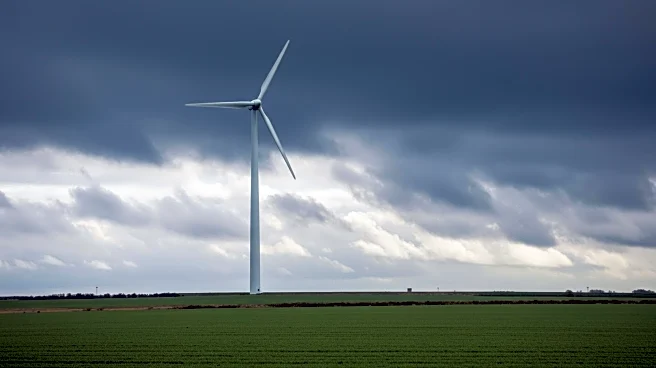What's Happening?
The White House has appointed David Rosner, a Democrat, as the new chairman of the Federal Energy Regulatory Commission (FERC). Rosner, who has been a commissioner since June 2024, previously served as an energy industry analyst and held positions at the U.S. Department of Energy and the Bipartisan Policy Center. His appointment comes as FERC faces critical issues related to grid reliability, energy transition, and infrastructure development. Rosner emphasizes consensus-driven decision-making to achieve durable outcomes. His nomination faced opposition from Friends of the Earth, an environmental group, due to perceived biases towards the natural gas industry. Rosner succeeds Mark Christie, a Republican appointed by President Trump, who left FERC after Trump did not renominate him.
Why It's Important?
Rosner's appointment as FERC chairman is significant as the agency plays a crucial role in regulating the U.S. energy sector, particularly during a period of transition towards renewable energy sources. His leadership could influence policies on grid reliability and infrastructure development, impacting energy affordability and sustainability. The opposition from environmental groups highlights the ongoing debate over balancing fossil fuel interests with environmental concerns. Rosner's approach to consensus-driven decision-making may foster collaboration across political and industry lines, potentially leading to more stable and forward-moving energy policies.
What's Next?
FERC currently has three commissioners, which is enough for a quorum to issue orders. However, conflicts of interest may arise, preventing votes on certain cases until the agency's two vacant seats are filled. President Trump has nominated Laura Swett and David LaCerte to fill these seats, pending Senate approval. Once confirmed, Trump is expected to appoint one of them as chairman. The completion of this process could stabilize FERC's leadership and enable more comprehensive policy decisions.
Beyond the Headlines
Rosner's appointment may signal a shift towards more bipartisan cooperation within FERC, given his background in consensus-building. This could lead to more balanced energy policies that consider both economic and environmental factors. The agency's decisions will be closely watched by stakeholders across the energy sector, including utilities, environmental groups, and policymakers, as they navigate the complexities of the energy transition.









